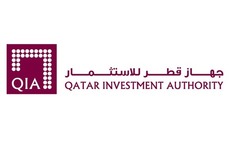
Q&A: Ancora's Veronica Lukito
Veronica Lukito, CEO of Ancora International, discusses the rewards and challenges of investing in Indonesia
Q: With investor interest in Indonesia rising, are you concerned about valuations?
A: With a lot of competition, valuations become an issue, particularly for deals that are intermediated. But in the mid-cap space there are still opportunities that are proprietary and you are able to whisk through the valuations a bit more easily.
Q: It has been suggested that valuations might ease in the run up to the Indonesian presidential election in 2014. To what extent is it right to draw a direct correlation between private equity and the political landscape?
A: That's probably across the board and not related to private equity deals per se. Indonesia is driven by its capital markets, which are still very much underrepresented in terms of the number of active participants. If the top 10 stocks tank it affects the whole market - and most of the investors are foreign and susceptible to short-term volatility. It is good news for private equity players because it sets the tone when you are in negotiations with target companies.
Q: Indonesia has been described as a difficult place for foreign investors by Southeast Asia standards. Is this a fair assessment?
A: If you take Southeast Asia as Singapore and Malaysia, certainly we have a lot more challenges. But if you compare Indonesia to Vietnam, Cambodia and even the Philippines I would say that we are a lot more investor-friendly and open to partnerships with foreigners.
Q: Some of the global buyout firms have struggled to get deals here. Why is that?
A: If you look at private equity 1.0 when suitcase bankers or private equity executives were flying in and out for investments, it may have worked in the 1990s, but they were acting more like creditors than equity holders. The model is no longer suitable for a market like Indonesia.
Q: What sectors do you find most appealing?
A: Infrastructure is very attractive but you need a focused strategy because almost everything is greenfield; only a handful or projects that are up and running are not state-owned. The natural resources sector is also interesting. This is a fairly new industry for Indonesia. Prior to 1998, the industry was controlled by a few global players and state-owned companies. Post-1998, after democracy kicked in and with the decentralization process that was already in place, there have been a lot more participants on the domestic side. You see this in the coal sector in particular because it's a relatively easier operational enterprise than oil and gas. Other than that, the consumer and financial sectors are attractive, because you can leverage the favorable demographics. The financial sector in Indonesia has delivered some of the largest returns in the world and a lot of investors are trying to participate.
Latest News
Asian GPs slow implementation of ESG policies - survey
Asia-based private equity firms are assigning more dedicated resources to environment, social, and governance (ESG) programmes, but policy changes have slowed in the past 12 months, in part due to concerns raised internally and by LPs, according to a...
Singapore fintech start-up LXA gets $10m seed round
New Enterprise Associates (NEA) has led a USD 10m seed round for Singapore’s LXA, a financial technology start-up launched by a former Asia senior executive at The Blackstone Group.
India's InCred announces $60m round, claims unicorn status
Indian non-bank lender InCred Financial Services said it has received INR 5bn (USD 60m) at a valuation of at least USD 1bn from unnamed investors including “a global private equity fund.”
Insight leads $50m round for Australia's Roller
Insight Partners has led a USD 50m round for Australia’s Roller, a venue management software provider specializing in family fun parks.







